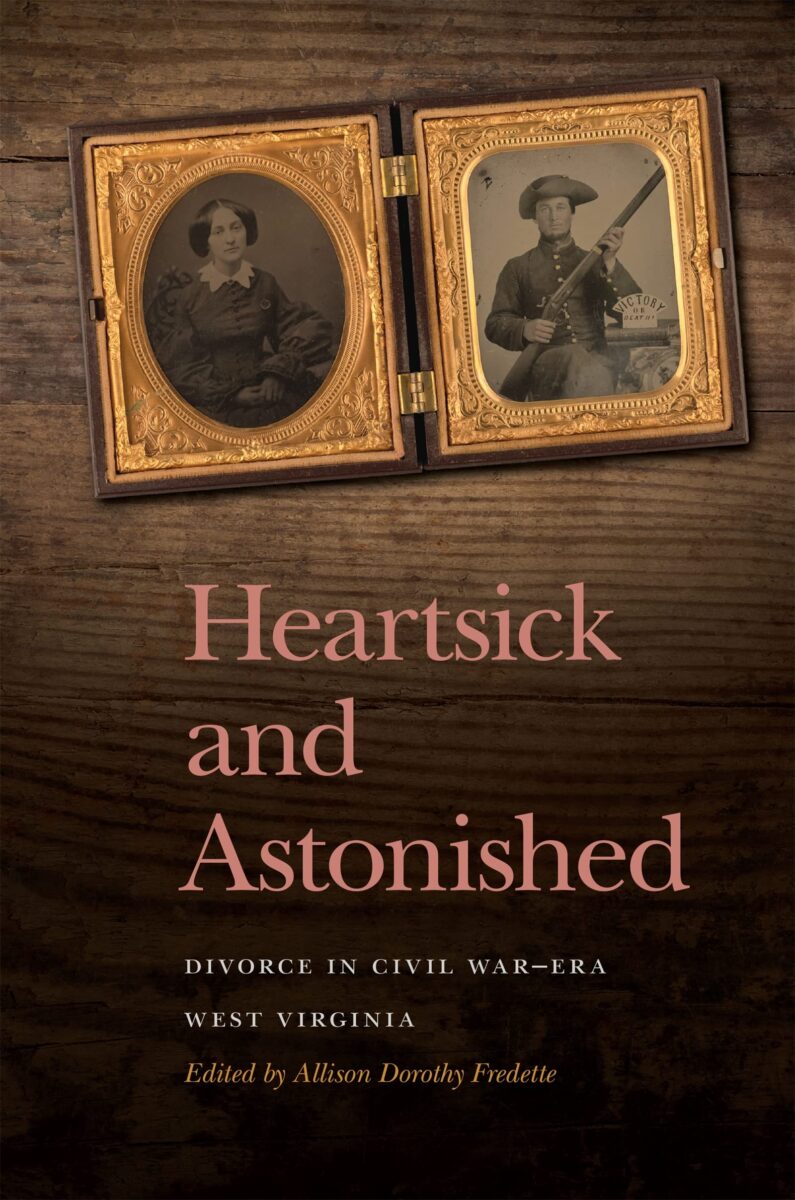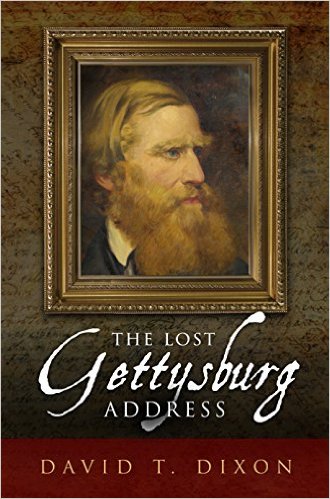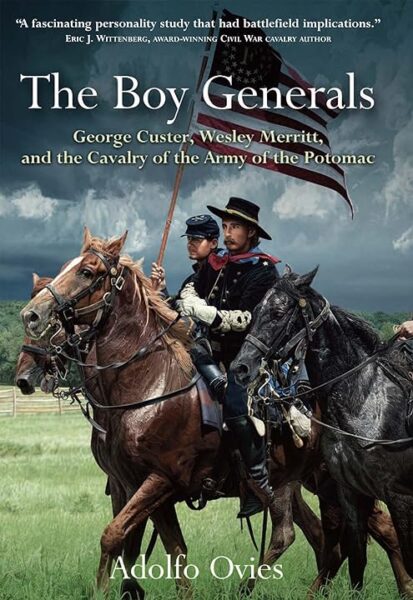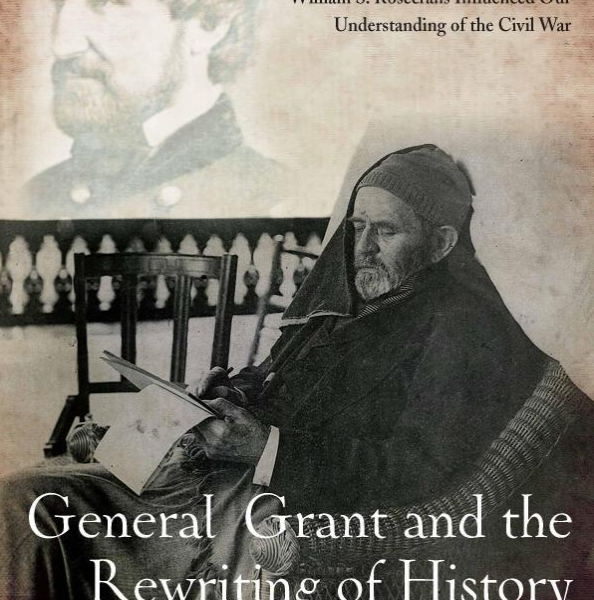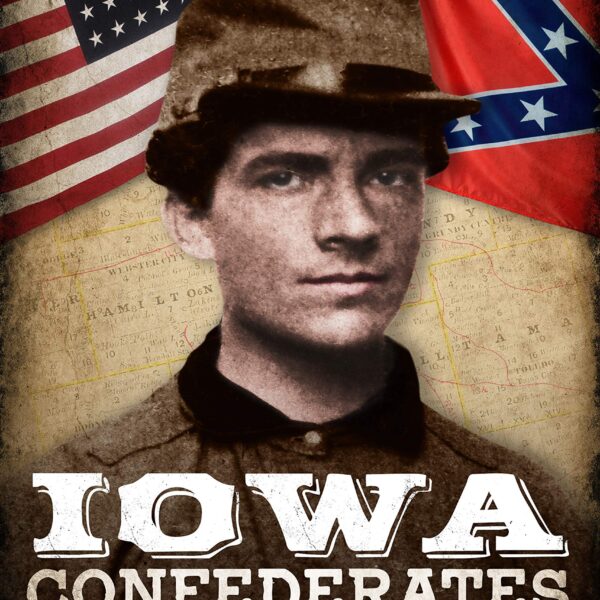Historians have long been interested in the Civil War’s impact on families—particularly how wives transformed into widows and children made fatherless by what occurred on the battlefield mourned, coped, and developed strategies to survive. In the past decade a few historians, most notably David Silkenat and Allison Dorothy Fredette, have begun to explore how the conflict impacted relationships between husbands and wives, redefined gender roles, and prompted state legislatures to revise divorce laws. This anthology of primary sources not only adds significantly to our understanding of divorce during the Civil War era, but arguably solidifies Fredette as this topic’s foremost scholar.
Twenty-seven divorce cases filed in Wheeling, Virginia (later West Virginia), between 1850-1873, form this book’s core. They are annotated with significant details about each of the individuals involved. While the volume of divorce cases during that period far exceeds what is included in this book (the other cases can be accessed via a companion website), Fredette contends that this sampling “best represent the process of divorce, the environment of Wheeling, the lives of those living in the city, and the impact of war on Ohio County marriages” (44).
Some of the cases in this collection reveal the cruel realities soldiers confronted when they came home at war’s end in 1865. For example, when Lewis Long, a German immigrant and veteran of the 25th Ohio Light Artillery, returned to Wheeling, Long discovered that his wife, Rosanna, had “been living a lewd and adulterous life” (132). Jacob Stroble, who served in the 1st West Virginia Light Artillery, fared similarly when he arrived home and discovered that his wife Ellen met another man during the conflict, John Hunter, and had an affair with him.
This valuable primary source collection bares more than the infidelity some soldiers discovered upon their return home. The documents expose the various factors that drove spouses to seek legal separation. While some cases highlight motives that remain the bane of marriages even today—cheating, abuse, criminal activity, and abandonment—the documents also reveal much about expectations for a spouse during the latter half of the nineteenth century. For instance, when James Kerr’s wife, Louisa, refused to move to Wheeling with him so that he could pursue a career as a house carpenter, he filed for divorce. The court ruled in James’s favor and granted the divorce in June 1870.
The cases also divulge much about the keen legal awareness wives who filed for divorce possessed. For example, West Virginia law required that in cases of abandonment, a spouse had to be absent for three years before divorce proceedings could commence. When Belvidere Taylor filed for divorce in 1871, Fredette’s sleuthing shows that Belvidere’s husband, Frank, while he indeed deserted his wife and their two children, had not been absent for three years. Nonetheless, Belvidere deceived the court about the amount of time her husband had been gone. Belvidere’s ruse (which also illustrates the legal risks wives were willing to take to be free of a deadbeat husband) worked, as the court granted the divorce.
This volume’s value transcends Fredette’s tireless efforts to transcribe, annotate, and assemble these cases. Fredette’s introduction—really a scholarly essay—offers an outstanding analysis of attitudes toward divorce during the Civil War era, the evolution of divorce laws, and how after West Virginia’s formation in 1863 the state began to emulate “its northern and midwestern neighbors” by adopting less restrictive divorce laws than southern states (5). The Civil War then, Fredette rightfully argues, influenced marital relationships in myriad ways. A 284% increase in the divorce rate in Wheeling did not occur simply due to the unfaithfulness soldiers discovered upon their return to Wheeling. Revamped laws which made divorces easier to obtain, coupled with women emboldened by their wartime experience and the opportunity war presented to abandon or neglect spouses all, in Fredette’s estimation, contributed to the significant increase in Wheeling’s divorce rates.
Fredette’s book will appeal widely to Civil War era historians interested in the conflict’s impact on marriages and how the transformations wrought by the war impacted how lawmakers thought about relationships between husbands and wives. Nineteenth-century social historians will likewise find this volume valuable as it contains important insights into the home lives of ordinary individuals caught up in one of the nation’s most extraordinary moments.
Jonathan A. Noyalas is director of Shenandoah University’s McCormick Civil War Institute and a professor in the history department at Shenandoah. He is the author or editor of fifteen books, including most recently Slavery and Freedom in the Shenandoah Valley during the Civil War Era.
